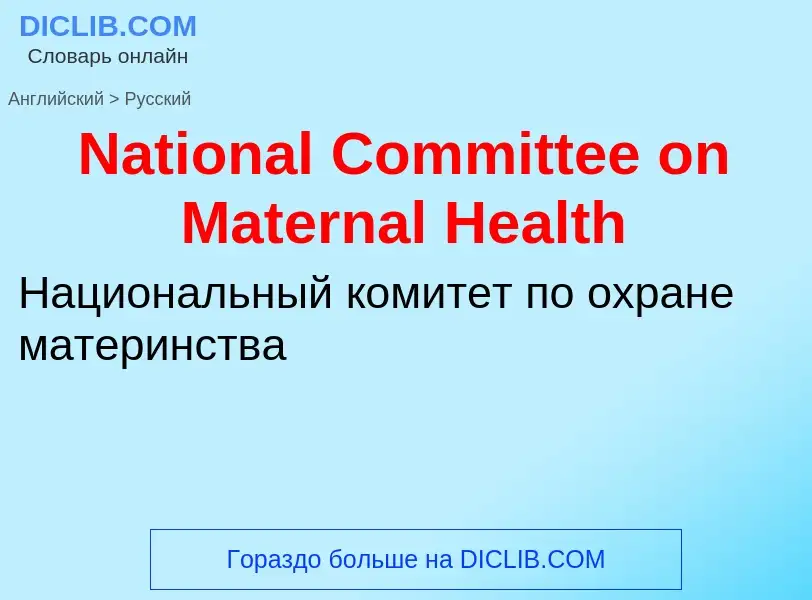Traducción y análisis de palabras por inteligencia artificial ChatGPT
En esta página puede obtener un análisis detallado de una palabra o frase, producido utilizando la mejor tecnología de inteligencia artificial hasta la fecha:
- cómo se usa la palabra
- frecuencia de uso
- se utiliza con más frecuencia en el habla oral o escrita
- opciones de traducción
- ejemplos de uso (varias frases con traducción)
- etimología
National Committee on Maternal Health - traducción al ruso
[,næʃənl'helθ,sə:vɪs]
общая лексика
Государственная служба здравоохранения (создана в 1948 лейбористским правительством; общее руководство возложено на Министерство здравоохранения и социального обеспечения [Department of Health and Social Security]; все основные виды медицинской помощи оказываются бесплатно; в 1951 введена частичная оплата за некоторые виды помощи; финансируется за счёт государственного бюджета, а тж. за счёт взносов граждан)
Definición
Wikipedia
Maternal health is the health of women during pregnancy, childbirth, and the postpartum period. In most cases, maternal health encompasses the health care dimensions of family planning, preconception, prenatal, and postnatal care in order to ensure a positive and fulfilling experience. In other cases, maternal health can reduce maternal morbidity and mortality. Maternal health revolves around the health and wellness of pregnant women, particularly when they are pregnant, at the time they give birth, and during child-raising. WHO has indicated that even though motherhood has been considered as a fulfilling natural experience that is emotional to the mother, a high percentage of women develop health problems and sometimes even die. Because of this, there is a need to invest in the health of women. The investment can be achieved in different ways, among the main ones being subsidizing the healthcare cost, education on maternal health, encouraging effective family planning, and ensuring progressive check up on the health of women with children. Maternal morbidity and mortality particularly affects women of color and women living in low and lower-middle income countries.

![The CIA World Factbook]]. Date of Information: 2010</ref> The CIA World Factbook]]. Date of Information: 2010</ref>](https://commons.wikimedia.org/wiki/Special:FilePath/Maternal mortality rate worldwide.jpg?width=200)



